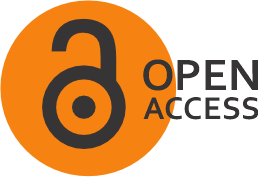Pancasila: The Foundation for Developing Science and Technology in Indonesia

Published online: 5 Dec 2024
Abstract
Pancasila, as the foundation of the Indonesian state, has an important role in the development of science and technology. Pancasila reflects the noble values that serve as the ideological foundation and ethical and moral guidelines in the development of sustainable and equitable science and technology. This study employs a qualitative approach, utilising books, journals, and relevant articles. This study aims to explain the importance of the role of Pancasila in the advancement of science and technology by applying the values of Pancasila as the basis for the development of science and technology. The results of this study indicate that Pancasila is not only the foundation of the state but also a strong ideological foundation for the development of sustainable and equitable science and technology by applying the values of Pancasila.
References
Andriani, A. (2016). the Position of Pancasila Value on Civics Study in the Formation of Character Nation Karakter Bangsa. Civicus, 20(2).
Armini, N. K. (2024). Evaluasi Metode Penilaian Perkembangan Siswa dan Pendidikan Karakter dalam Kurikulum Merdeka Pada Sekolah Dasar. Metta : Jurnal Ilmu Multidisiplin, 4(1), 98–112. https://doi.org/10.37329/metta.v4i1.2990 DOI: https://doi.org/10.37329/metta.v4i1.2990
Awaluddin, A. A., & Najicha, F. U. (2023). Relevansi Etika Teknologi Terhadap Nilai-Nilai Dasar Pancasila.
Chairani, R., Pradana, M. R. A., Sari, H. N., Rahmania, N., Anshori, M. I., Muspawi, M., Supardi, E., Yusuf, D. H. B., Mahaardhika, I. M., Putra, P. A. G. S., Dewi, N. P. A. A. K., & Wirsiasih, K. (2022). Buku_MSDM_editor.pdf. In Jurnal Ilmiah Universitas Batanghari jambi (Vol. 1, Issue 1, p. 304).
Fanggidae, E., Pratama, F. H., Wardhani, R. R. W. A., & Rachman, T. (2021). Strategi Keluarga dalam Menerapkan Nilai-Nilai Pancasila untuk Membentuk Kepribadian Anak Melalui Keteladanan. Prosiding EMAS: Ekonomi Manajemen Akuntansi Kewirausahaan, 1(1), 199–208.
Hardiyanto, L., & Indraprasta. (2024). Prosiding Seminar Nasional Pendidikan Kewarganegaraan 2024 " Menilik Isu Kewarganegaraan : Dinamika Perkembangan Global pada Era Society 5 . 0 " PERANAN PANCASILA SEBAGAI DASAR NILAI PERKEMBANGAN Prosiding Seminar Nasional Pendidikan Kewarganegaraan 2024. PERANAN PANCASILA SEBAGAI DASAR NILAI PERKEMBANGAN TEKNOLOGI, 38–46.
Huda, M. C. (2018). Meneguhkan Pancasila Sebagai Ideologi Bernegara: Implemetasi Nilai-Nilai Keseimbangan dalam Upaya Pembangunan Hukum di Indonesia. Resolusi: Jurnal Sosial Politik, 1(1), 78–99. https://doi.org/10.32699/resolusi.v1i1.160 DOI: https://doi.org/10.32699/resolusi.v1i1.160
Kristiyanti, C. T. S. (2018). Penguatan Manifestasi Nilai Keadilan Pancasila Dalam Penegakan Hukum Di Era Kontemporer. Justitia et Pax, 33(1), 1–20. https://doi.org/10.24002/jep.v33i1.1604 DOI: https://doi.org/10.24002/jep.v33i1.1604
Muh David Balya Al. (2023). Kemajuan Teknologi Dan Pola Hidup Manusia Dalam Perspektif Sosial Budaya. TUTURAN: Jurnal Ilmu Komunikasi, Sosial Dan Humaniora, 1(3), 26–53. https://doi.org/10.47861/tuturan.v1i3.272 DOI: https://doi.org/10.47861/tuturan.v1i3.272
Nuraeni, I., & Anggraeni Dewi, D. (2022). Peranan Pancasila Sebagai Landasan Perkembangan Ilmu Pengetahuan dan Teknologi. Jurnal Pendidikan Tambusai, 6(2), 9986–9991.
Nurhayati, C. (2008). Fungsi Pendidikan Kewarganegaraan (PKn) dalam Membentuk Kepribadian Peserta Didik (Skripsi). Skripsi, 1–62.
Ramdhani, D. N., & Dewi, D. A. (2022). Pentingnya Implementasi Nilai-Nilai Pancasila dalam Menghadapi Perkembangan Ilmu Pengetahuan dan Teknologi. Jurnal Kewarganegaraan, 6(1), 1081–1088.
Sabrina, R. (2021). Manajemen Sumber Daya Manusia. In Edisi Revisi Jakarta: Bumi Aksara (Issue JUNI). DOI: https://doi.org/10.31219/osf.io/7n2gb
Sudrajat, A. (2007). Konsep dasar negara: studi analisis terhadap pemikiran soekarno. Repository.Uinjkt.Ac.Id.
Taufiq, O. H., Galuh, U., & Galuh, U. (2024). Kebijakan Pemerintah Dalam Menanggulangi Ancaman Intoleransi Beragama Terhadap Ketahanan Ideologi Pancasila Di Kabupaten Ciamis , Provinsi Jawa Barat. 30(2), 161–182. DOI: https://doi.org/10.22146/jkn.98566
License
Copyright (c) 2024 Liliana nabila, Dwi Mardatillah, Halwa Marjani, Asyifa Quratu Aini, Daffa Rahmad Fauzan, Aprilia Br Sembiring (Author)

This work is licensed under a Creative Commons Attribution 4.0 International License.
Permission is granted subject to the terms of the License under which the work was published. Permission will be required if your reuse is not covered by the terms of the License.

